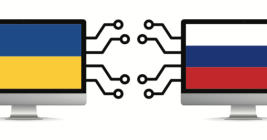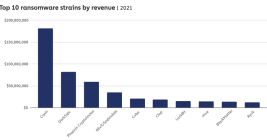Author Archives: BrianKrebs
A Closer Look at the LAPSUS$ Data Extortion Group
Microsoft and identity management platform Okta both disclosed this week breaches involving LAPSUS$, a relatively new cybercrime group that specializes in stealing data from big companies and threatening to publish the information unless a ransom demand is paid. Here’s a closer look at LAPSUS$, and some of the low-tech but high-impact methods the group uses to gain access to targeted organizations.
‘Spam Nation’ Villain Vrublevsky Charged With Fraud
Pavel Vrublevsky, founder of the Russian payment technology firm ChronoPay and the antagonist in my 2014 book “Spam Nation,” was arrested in Moscow this month and charged with fraud. Russian authorities allege Vrublevsky operated several fraudulent SMS-based payment schemes, and facilitated money laundering for Hydra, the largest Russian darknet market. But according to information obtained by KrebsOnSecurity, it is equally likely Vrublevsky was arrested thanks to his propensity for carefully documenting the links between Russia’s state security services and the cybercriminal underground.
Pro-Ukraine ‘Protestware’ Pushes Antiwar Ads, Geo-Targeted Malware
Researchers are tracking a number of open-source “protestware” projects on GitHub that have recently altered their code to display “Stand with Ukraine” messages for users, or basic facts about the carnage in Ukraine. The group also is tracking several code packages that were recently modified to erase files on computers that appear to be coming from Russian or Belarusian Internet addresses.
Lawmakers Probe Early Release of Top RU Cybercrook
Aleksei Burkov, a cybercriminal who long operated two of Russia’s most exclusive underground hacking forums, was arrested in 2015 by Israeli authorities. The Russian government fought Burkov’s extradition to the U.S. for four years — even arresting and jailing an Israeli woman to force a prisoner swap. That effort failed: Burkov was sent to America, pleaded guilty, and was sentenced to nine years in prison. But a little more than a year later, he was quietly released and deported back to Russia. Now some Republican lawmakers are asking why a Russian hacker once described as “an asset of supreme importance” was allowed to shorten his stay.
Report: Recent 10x Increase in Cyberattacks on Ukraine
Microsoft Patch Tuesday, March 2022 Edition
Microsoft on Tuesday released software updates to plug at least 70 security holes in its Windows operating systems and related software. For the second month running, there are no scary zero-day threats looming for Windows users (that we know of), and relatively few “critical” fixes. And yet we know from experience that attackers are already trying to work out how to turn these patches into a roadmap for exploiting the flaws they fix. Here’s a look at the security weaknesses Microsoft says are most likely to be targeted first.
Internet Backbone Giant Lumen Shuns .RU
Lumen Technologies, an American company that operates one of the largest Internet backbones and carries a significant percentage of the world’s Internet traffic, said today it will stop routing traffic for organizations based in Russia. Lumen’s decision comes just days after a similar exit by backbone provider Cogent, and amid a news media crackdown in Russia that has already left millions of Russians in the dark about what is really going on with their president’s war in Ukraine.
Conti Ransomware Group Diaries, Part IV: Cryptocrime
Three stories here last week pored over several years’ worth of internal chat records stolen from the Conti ransomware group, the most profitable ransomware gang in operation today. The candid messages revealed how Conti evaded law enforcement and intelligence agencies, what it was like on a typical day at the Conti office, and how Conti secured the digital weaponry used in their attacks. This final post on the Conti conversations explores different schemes that Conti pursued to invest in and steal cryptocurrencies.
Conti Ransomware Group Diaries, Part III: Weaponry
Part I of this series examined newly-leaked internal chats from the Conti ransomware group, and how the crime gang dealt with its own internal breaches. Part II explored what it’s like to be an employee of Conti’s sprawling organization. Today’s Part III looks at how Conti abused a panoply of popular commercial security services to undermine the security of their targets, as well as how the team’s leaders strategized for the upper hand in ransom negotiations with victims.













